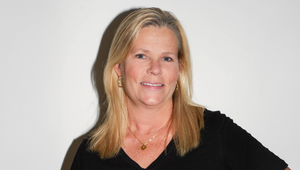
The Asian Invasion, Ali Baba and Spikes 2014

This week the Chinese e-retail platform Ali Baba went public on the New York stock exchange, putting it in the running to become one of the first truly global Chinese megabrands. While the likes of Lenovo and WeChat have paved the way, the scale of Ali Baba’s international adventure is off-the-charts. The stuff that changes games. With everyone’s eyes on the Chinese hybrid of Amazon and eBay, it feels quite apt that I’m spending the week at Spikes 2014, a bustling celebration of Asian creativity and enterprise.
It’s an exciting time across Asia right now. Whereas previous years have been dominated by China’s explosive economic growth and a simplistic Western-centric narrative of ‘the rise of Asian creativity’ (which always struck me as hugely patronising, but whatever), now what’s emerging is something much more diverse and unpredictable, with different players emerging from China’s shadows and coming to the fore.
One of these players that everyone is talking about is South Korea. Of course we all know the Samsung story – the brand previously known in its home country as ‘Samsuck’ has become one of the coolest brands on the planet. But this transformation hasn’t happened in isolation. From the mid-80s onward the government has carefully and strategically invested in the country’s Internet infrastructure and popular culture with the aim of becoming the world’s first soft-power superpower. Speaking with agencies currently working with South Korean brands like LG, there’s a real sense of excitement around the country – I would be unsurprised if there isn’t some kind of Korea focus at next year’s Cannes. (If you’re interested in learning more, I urge you to buy/steal Euny Hong’s ‘The Birth of Korean Cool’ – it will have you yearning for K-Pop and kimchi).
Another country that seems to be piquing the industry’s curiosity is Taiwan. Home to brands like Asus, it’s got a history of producing goods for the global market and it’s starting to lure creative talent. The first speakers of the whole festival were directors Henry Chen and Ssong Yang of Lucky Sparks – a pair of US-based filmmakers who thought ‘fuck it’ and decided to re-locate to Taiwan to try and make it in the exciting market. Later in the day I caught up with Dutch agency Superheroes who told me of their own enthusiasm for Taiwan having worked closely with computing brand Asus. Indonesia too is being talked about a lot - and I mean a lot. The sophistication and intricacy of the country's social media is blowing everywhere else out of the water.
Back over on mainland China, it looks like the local advertising industry is entering a new stage in its evolution. ‘Maturity’ is the word I keep hearing from agency creatives, producers and music companies. As for brands, one shift that will likely follow the Ali Baba public offering is a new wave of Chinese companies and brands attempting to penetrate markets beyond Asia. For one thing, the local market isn’t quite as profligate as it has been over the past decade – the Chinese Communist Party has been instigating a spate of anti-corruption crackdowns and one of the victims has been the country’s usually buoyant luxury market. People are still buying at home - Chinese GDP is still pretty healthy - but perhaps it's time to head abroad.
AKQA’s Rei Inamoto reckons that international agencies that have expanded into Asia, China in particular, in order to help US and Europe-based brands crack the local market may soon see a new kind of client banging at their door.
“[It hasn’t happened as much] but I suspect that it will happen in the next six to 12 months. Up until now the majority of the AKQA expansion has been client-driven from the West, either from Europe and the US. Those clients wanted us to help them in the markets we opened offices in. Whether it was Tokyo, Shanghai in 2007, Amsterdam, Berlin… those offices have been expansions for existing clients we already had in the West. I think possibly Asian brands and Chinese brands are going to try to go global. I think everyone needs to be global to be successful so I think we will be seeing that in the next six months or so.”
At the time of writing, I’ve only experienced one day of Spikes Asia and already a richer and more nuanced impression of the Asia-Pacific market is starting to form in my mind – and I’m no Asia newbie either. I’m sure that as the week progresses, I’ll have my mind turned around even more – so check back on the site for more interviews and news stories from the 2014 festival throughout the week.















